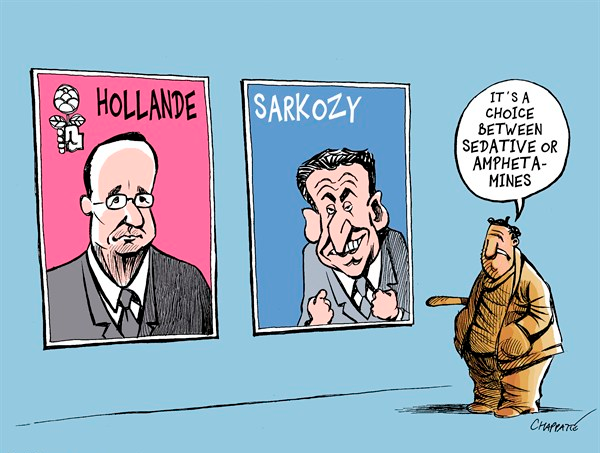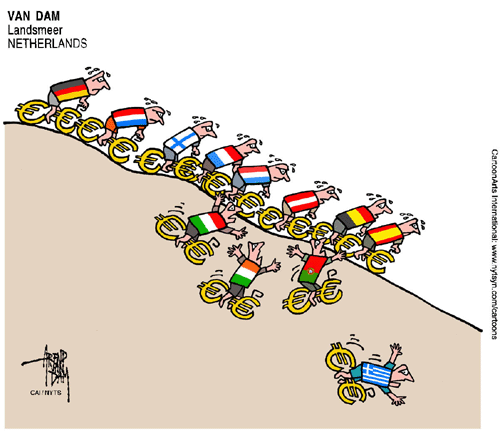Cross posted from The Stars Hollow Gazette
Greek, French and German voters went to the polls this past weekend and rejected pretty much told the European leaders they were very unhappy with the austerity measures that were being forced on them to bail out European banks. It took until yesterday for the world markets to react to this new reality with the Dow closing below its inflated 13,000 mark. Germany, the chief cheerleader for austerity, is not happy with France and very displeased with the new Greek leadership that blithely told Germany what to do with its austerity measures:
Alexis Tsipras, whose bloc came second in Sunday’s vote, said Greek voters had “clearly nullified the loan agreement”. [..]
The European Commission and Germany say countries must stick to budget cuts.
European Commission President Jose Manuel Barroso said on Tuesday: “What member states have to do is be consistent, implementing the policies that they have agreed.” [..]
Mr Tsipras made his position clear to reporters in a five-point plan:
- Cancelling the bailout terms, notably laws that further cut wages and pensions
- Scrapping laws that abolish workers rights, particularly a law abolishing collective labour agreements due to come into effect on 15 May
- Promoting changes to deepen democracy and social justice
- Investigating Greece’s banking system which received almost 200bn euros of public money
- Setting up an international committee to find out the causes of Greece’s public deficit and putting on hold all debt servicing
It looks increasingly like the Greeks will be abandoning the Euro, it’s just a matter of when:
“Germans are now predominantly of the opinion that they would be better off if Greece left the euro zone,” said Carsten Hefeker, a professor of economics and an expert on the euro at the University of Siegen. “If the country really is continuing on the path they are taking now, it would be hard to justify keeping them in. How do you deal with a country that says we don’t want to keep any of the commitments we have made?” [..]
Perhaps the one card Greece has to play is the danger its exit could pose to other, much larger members like Spain and Italy, with far greater consequences. If Greece were pushed out, Mr. Hefeker said, the bond markets would start betting on the next country to be kicked out. “Then Spain or Italy would be put under pressure, and the danger would be of the whole euro zone collapsing,” he said.
There are few options are open for the European Union, the European Central Bank and the International Monetary Fund which is holding most of Greece’s debt and easing the threat to the banks.
First, the so-called “troika” could release just enough funds to keep the government running until the political situation stabilizes;
The terms of the agreement could be renegotiated with the creditors:
Or, lastly, the “troika” could just refuse to give Greece any money, as the IMF did over 10 years ago when Argentina faced similar economic crisis. This actually turned out well for Argentina over a shorter recovery than is predicted for Greece under the current terms.
Perhaps it is past time for Greece to go it on its own and let the Eu continue the blood letting without them.

 The French Presidential election will take place this Sunday, May 6. Meanwhile, the campaigning has ended Friday evening with the Socialist challenger,
The French Presidential election will take place this Sunday, May 6. Meanwhile, the campaigning has ended Friday evening with the Socialist challenger,  The robust economy of Germany is starting to feel the effects of the economic crisis of its partner nations in the Eurozone and is
The robust economy of Germany is starting to feel the effects of the economic crisis of its partner nations in the Eurozone and is